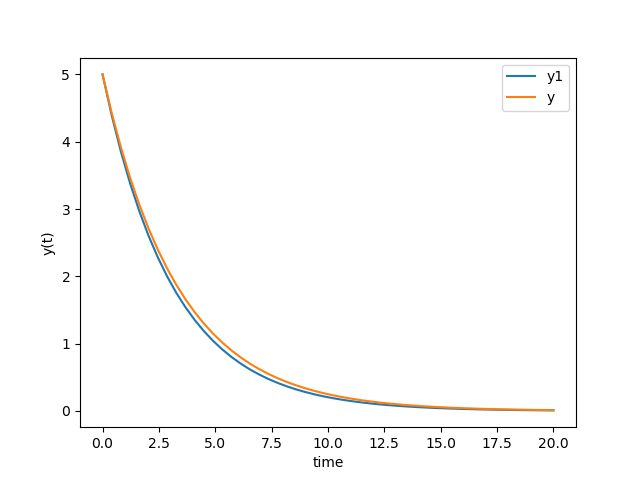An example of using ODEINT is with the following differential equation with parameter k=0.3, the initial condition y0=5 and the following differential equation.
import numpy as np from scipy.integrate import odeint import matplotlib.pyplot as plt # function that returns dy/dt def model(y,t): k = 0.3 dydt = -k * y return dydt # initial condition y0 = 5 # time points [t,dt] = np.linspace(0,20,retstep=True) # solve ODE y = odeint(model,y0,t) # another way to do y1=np.empty_like(t) y1[0]=y0 for i in range(len(t)-1): y1[i+1]=y1[i]+dt*model(y1[i],t) # plot results plt.plot(t,y1,label='y1') plt.plot(t,y,label='y') plt.xlabel('time') plt.ylabel('y(t)') plt.legend(loc='best') plt.show()

